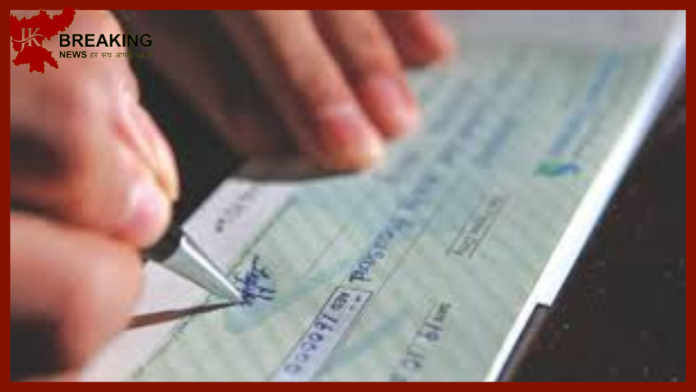Bank Cheque Payment: If someone has made a wrong signature on the bank Cheque, can it be rectified. Transaction can be canceled due to not signing correctly on the check (Cheque Signature Mismatch), delay can happen.
Cheque Signature Mismatch: When it comes to Financial Transaction, properly signing the Financial Transaction (Bank Cheque) is considered to be the first step. A properly signed Cheque determines the validity of the payment and helps prevent fraud. But, sometimes it is also seen that the Cheque is not signed properly. In such a situation, the Cheque bounces and the payment cannot be made.
Come, let’s understand here if someone has not signed the financial transaction (Bank Cheque) properly, then what can be its consequences and how can it be rectified?
Bank Cheque Signature Mismatch
If a check is not properly signed, then it is declared invalid. This means that the check has no legal value, and the desired transaction cannot be carried out. The receiver cannot deposit or encash such a Cheque on which valid signatures have not been made.
Delayed Transaction
If there is no correct signature on the cheque, there may be a delay in the payment process from the cheque. If the receiver attempts to deposit the cheque, the bank will likely identify the problem and contact the account holder for clarification or a correct signature. Due to this delay, any delayed transaction or payment can be affected.
Communication with account holder
It is the responsibility of the banks to prevent the security of their customers’ accounts and unauthorized transactions. When the correct signature does not remain on the cheque, the bank can contact the account holder to verify the authenticity of the transaction. This may include contacting the account holder via phone or email to confirm their intentions.
Cheque Resubmission and Rectification
If the mistake is caught early, the account holder can rectify the problem by re-issuing a correctly signed cheque. Alternatively, some banks may allow the account holder to sign the check in the presence of a bank representative to attest to the signature.
Fraud Prevention and Security Measures
It is important to sign a Cheque correctly to prevent fraud and unauthorized access to money. Banks implement security features like signature verification, watermarking and advanced encryption to protect their customers. Not signing the Cheque properly weakens these security efforts.
Educational Reach
Banks often provide educational resources to customers about the correct way to sign Cheque and other essential financial traditions. The purpose of these resources is to reduce mistakes and increase customers’ understanding of financial transactions.
Legal consequences
Although, unknowingly signing a Cheque improperly, the account holder may not have to face serious legal consequences, but doing so intentionally for fraud can lead to legal action. Intentional fraud is a crime and can be punished with a fine or even jail.
Significantly, for Financial Transaction, signing the Cheque properly is a small but important task. Failure to properly sign a Cheque can result in transaction cancellations, delays, and potential security risks.
The bank and the account holder share the responsibility of ensuring the validity and security of financial instruments. By understanding the importance of proper signature, individuals can contribute to the financial system in a more secure and accurate manner.


